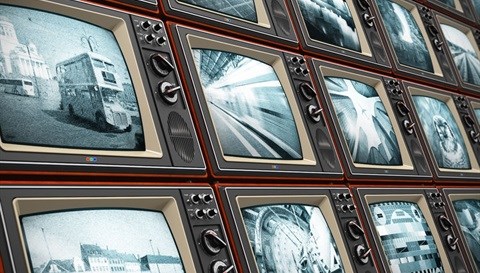The UN has set June as the deadline for moving from analogue to digital transmission. Only a few African countries seem prepared for the change. Even the largest television markets on the continent are lagging behind.
Staring at a blank TV screen has become a reality for most Kenyans, and many other African TV viewers could face the same fate come June 17. That is the deadline set by the UN's International Telecommunication Union (ITU) for television programs to be transmitted only digitally.
After the deadline, satellite dishes and antennas will receive their signals via a different technology. Theoretically, it will be possible to receive many more channels and enjoy improved image quality.
There is a story behind Kenya's black screens. President Uhuru Kenyatta's government ordered a consortium of four major television networks to be blocked from broadcasting in analogue. This happened after they refused to change their signals to digital. The media houses argued that they were not ready yet, and now they are in court trying to push for one hundred more days to prepare for the digital transition.
Apart from Nigeria and South Africa, Kenya is one of the largest television markets in Africa. The Standard Group, one of Kenya's leading media house, says it needs more time for the switchover
All three countries are not ready for the switchover, says Mike Jensen, an IT specialist with the Association for Progressive Communications (APC) based in South Africa. "The Kenyan situation is probably the worst-case scenario on the continent; South Africa is pretty close," Jensen said. "In Nigeria, only one state has made the switch," Jensen told DW.
Nationwide coverage after the switchover to digital broadcasting is by no means ensured in African countries. As in Kenya, it is often about money. The change is costly for governments and citizens alike, the APC states on its website, which seeks to create an awareness of the issue.
Television viewers will usually need a decoder, which costs about $50 (44 euros), to decode the digital signal. Moreover, television companies will have to dig deep into their pockets to be able to broadcast their programs using the new technology.
Tanzania a digital model
Vera Moses, a Tanzanian viewer, says she is happy with the digital reception. "The quality of the pictures is good," she told DW in an interview.
Tanzania is one of three countries that has already largely switched to wide-band Digital Video Broadcasting (DVB). "In Dar es Salaam we already switched off analogue transmission at the end of 2012," John Nkoma, the director of Tanzania's Communications Regulatory Authority (TCRA), told DW. Most cities are now receiving programs via DVB-T, which is terrestrial digital broadcasting via antenna. The remote parts of Tanzania receive broadcasts via satellite.
Dar es Salaam has already gone digital
It took some persuasion to convince citizens and businesses of the merits of the new system, Nkoma said, as he revealed two secrets to Tanzania's success: Firstly, decoders were taxed less. "The price for the decoders is artificially low," Nkoma said, "so they have become affordable." Tanzanians can get a decoder for $30.
Secondly, user habits were taken into consideration. "The public was used to free-to-air channels, so we required that in the digital broadcasting platform there would be the five popular channels of this country and those would be available as free channels." Viewers whose subscriptions expire would have these five channels to fall back on.
Market interests
But according to APC's Mike Jensen, that is not the whole story. Tanzania and neighbouring Rwanda had forced the switchover on the public by shutting off the analogue signal. Of course, there were citizens in both countries who simply could not afford the necessary equipment, Jensen said.
He thinks governments should guarantee a realistic compensation for the costs. The price of a decoder, Jensen said, was also a big issue in Mauritius. The government ordered large amounts of cheap decoders from China. Many of which had defects.
Satellite transmission is also to be digitalized
Jensen also does not understand the date the ITU has chosen. He estimates that by then only six countries may succeed in formally completing the switchover.
Germany has already changed to digital broadcasting, and so have most of the other industrialized nations. But Latin America has planned the switchover for as late as 2020.
Jensen says African telecommunications companies pushed for the early date for Africa. These companies, he said, were the only ones to profit from such a date, because they wanted to monopolize television broadcasting.

























